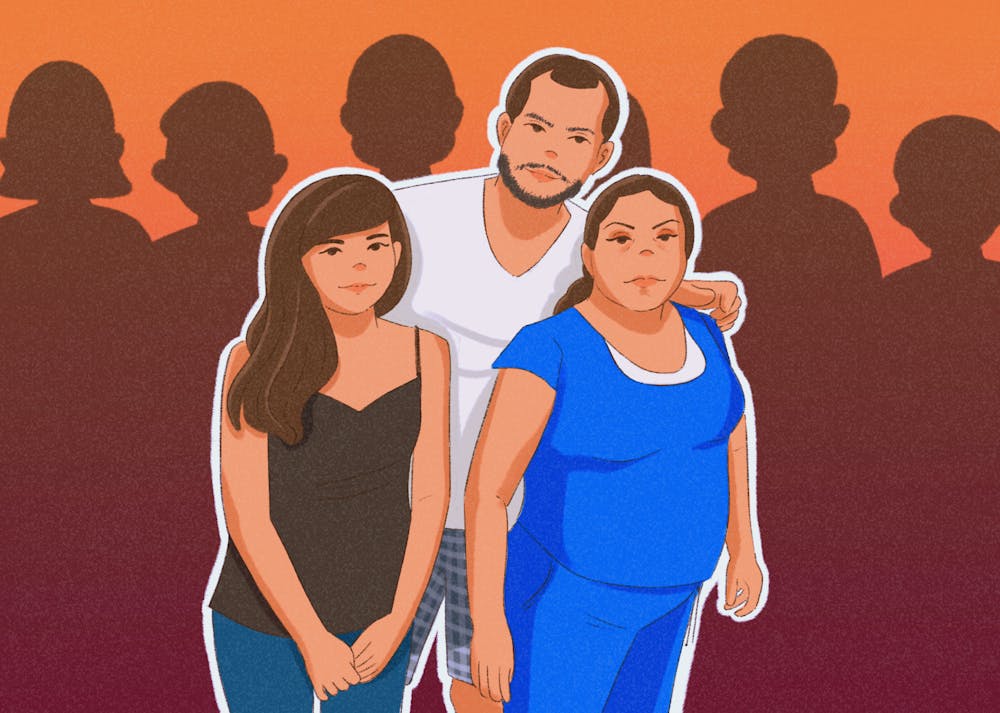A study from the Pew Research Center suggests Hispanic self-identity fades away the further a person is from their immigrant ancestor.
I'm third-generation on my dad's side, and although finding my cultural identity has been a struggle, I'm finally proud to call myself Hispanic.
My grandma grew up in a village, my dad was raised in the projects, and I spent my entire life in the suburbs. My grandma barely speaks English, my dad is 100% bilingual, and I still struggle with Spanish.
I grew up Americanized, and for a while, I barely recognized myself as Mexican.
I'm not alone in feeling this. A 2016 study from the Pew Research Center found only 77% of third-generation Hispanics self-identify as such, falling from 92% of second-generation. Only 50% of fourth-generation Hispanics self-identify with their Hispanic roots.
And honestly, I don't blame them. I've often asked myself if I'm Mexican enough.
The life my dad has, the life I have, are the outcomes of the choices my family made.
"We came here to give you opportunities we didn't have." Every child of an immigrant hears the same lecture.
But for all the opportunities coming to America brought us, it doesn't take away the levels of prejudice we've seen over the generations. I had a hard time coming to terms with my Hispanic identity, but plenty of other people had absolutely no problem identifying me, regardless of how Americanized I'd become.
In high school, most of my friends were white. My main "friend group" was made up of white, upper-to-middle class girls who often displayed microaggressions toward me without me even realizing it.
I didn't hang out with other Hispanic kids because I got the impression I wasn't Mexican enough to hang out with them. After all, I didn't speak Spanish fluently, I didn't enjoy the same snacks, the same candy, the same music, and I didn't know exactly where my great-grandparents were from, only that they were from Mexico.
"Not you though, you're not like them," is a phrase I heard all the time in middle school, high school, college and even in work environments.
I've been passed up for promotions, been called "spicy" and listen to myself be spoken over by a white person every so often. While it's a completely different world compared to the slur-spitting, rage-filled hatred the older generations in my family faced, it goes to show this behavior doesn't go away.
No amount of whiteness, gentrification or Americanization will change what people see when they look at me.
My grandmother, who bore the brunt of hate-filled language and actions when she grew up, still speaks Spanish openly, still practices traditions passed down from her parents and their parents before them, and above all, she's proud to be first-generation Mexican American.
When I visit my family in Texas, I see how connected we all are to each other — how much caring there is for one another and how much we really celebrate together.
Half of my cousins are speaking Spanish, the other half are speaking English, the small kids are running around, the adults are drinking, everyone is getting plates of food. Ultimately, the distinction between second, third and fourth-generation fades away, and what's left is our culture, our outlook and our pride.
I wasn't driven to embracing my heritage because of racism or prejudice being ever-present in my life, but rather, I was driven to wear it on my sleeve because of the pride my family has in spite of that.
I'm not quite there yet though, there's still things I need to work on.
Obviously, I'm much more fluent in Spanish than I was in high school, and I plan to continue working on it. The best way to do that is to speak it, write in it and listen to it. My road-trip playlist has become nothing but Bad Bunny, J Balvin, Juanes, Maná and Selena.
I'm keeping up with Mexican politics and doing my part to raise awareness on key issues affecting the people of Mexico, because ultimately, it affects my family, too. While the world was halted in the wake of the COVID-19 pandemic early in 2020, Mexico had it's own crisis: femicide and domestic abuse cases skyrocketing due to COVID-19 lockdowns.
Remember those traditions I mentioned, the ones my grandma still practiced which were passed down from the family? I decided in August I would follow in her footsteps and began learning curanderismo (commonly referred to as brujería) from her, which has been passed down for generations in my family, with the practice originating in Mexico.
READ MORE: Insight: I found spirituality through my grandma's witchcraft
It's taken me 20 years, at least, and I've reached the point where I can proudly say it doesn't matter if I'm still working on my Spanish, if my family's Christmas traditions aren't traditional in Mexico or if I grew up "Americanized."
I'm Hispanic, and I'm proud to be Hispanic.
I know I'm late, but when it comes to accepting my identity and embracing my culture, I guess it's better late than never.
Reach the reporter at jjcabre1@asu.edu and follow @joyce_cabreraAZ on Twitter.
Like The State Press on Facebook and follow @statepress on Twitter.
Continue supporting student journalism and donate to The State Press today.




